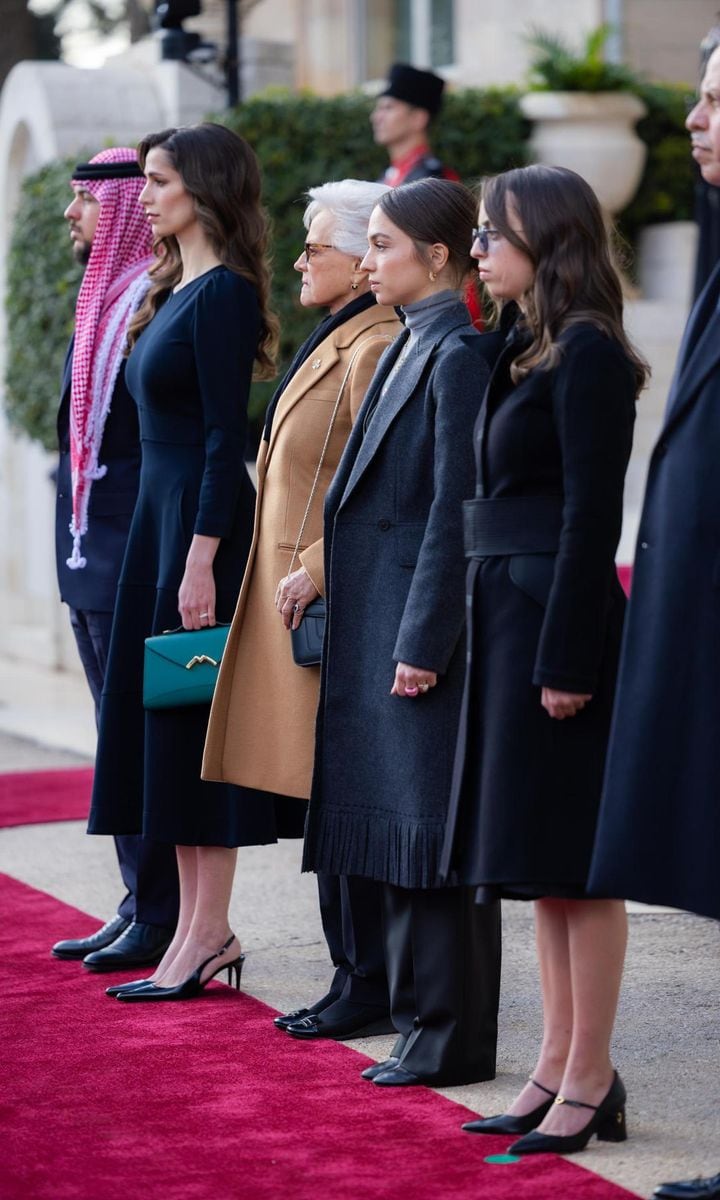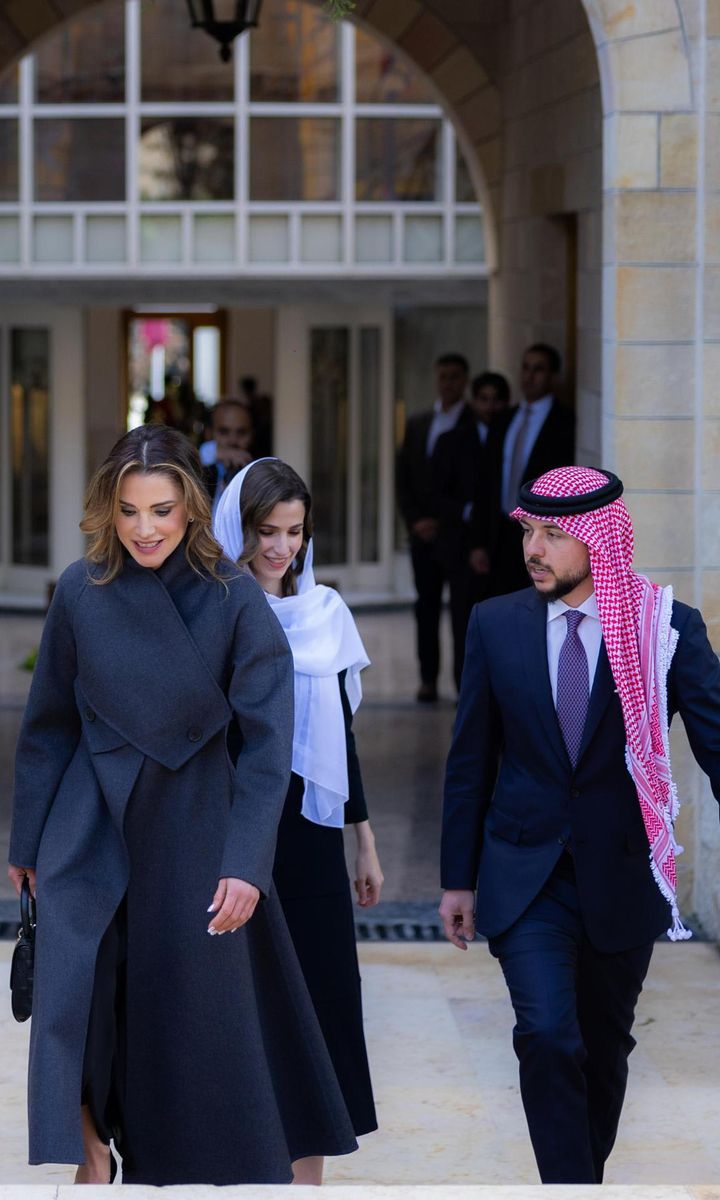It’s been 25 years since King Abdullah II of Jordan ascended the throne. Members of the Jordanian royal family, including Queen Rania and Princess Rajwa , came together on Wednesday to commemorate the anniversary of his accession.
The King, Queen and three of their children, Princess Salma, Princess Iman and Crown Prince Hussein, as well as their daughter-in-law Princess Rajwa, attended the Silver Jubilee flag raising ceremony at Raghadan Palace. The ceremony marked the launch of national celebrations of the King’s Silver Jubilee.
The Royal Hashemite Court noted that the Silver Jubilee flag “represents pride in the progress and achievements that Jordan has witnessed and is still witnessing, under the leadership of His Majesty.”
Queen Rania posted pictures from the ceremony on her personal Instagram, writing, “A leader blessed with a great people, and a people blessed with a great leader; together, 25 years of giving to this beloved country. From the Silver Jubilee Flag raising ceremony marking the 25th anniversary of His Majesty’s ascension to the Throne.”
The royal family also visited the tomb of King Abdullah’s late father, King Hussein, on the 25th anniversary of his passing. King Hussein passed away on Feb. 7, 1999.
On the anniversary of his grandfather’s death, Crown Prince Hussein shared an excerpt from a 1999 letter that King Hussein addressed to his son Abdullah. “I have known you—my son, whom I raised with my own hands—to love your country, enjoy a great sense of belonging to it, work diligently and selflessly for its sake without showing off,” the letter reads. “I know you to be determined, strong-willed, objective, balanced, and to work upon the guidelines of the honorable and noble Hashemite principles based on the love and fear of God, as well as the love of the people and humbling oneself to their will, being eager to serve them, treating them with fairness, respecting their elderly, showing mercy on their youth, and forgiving the guilty when possible.”
The letter continues, “These principles are also based on magnanimity, firmness when a decision is reached, and placing the interests of the country and nation above all other interests and considerations.”
,type=downsize)







